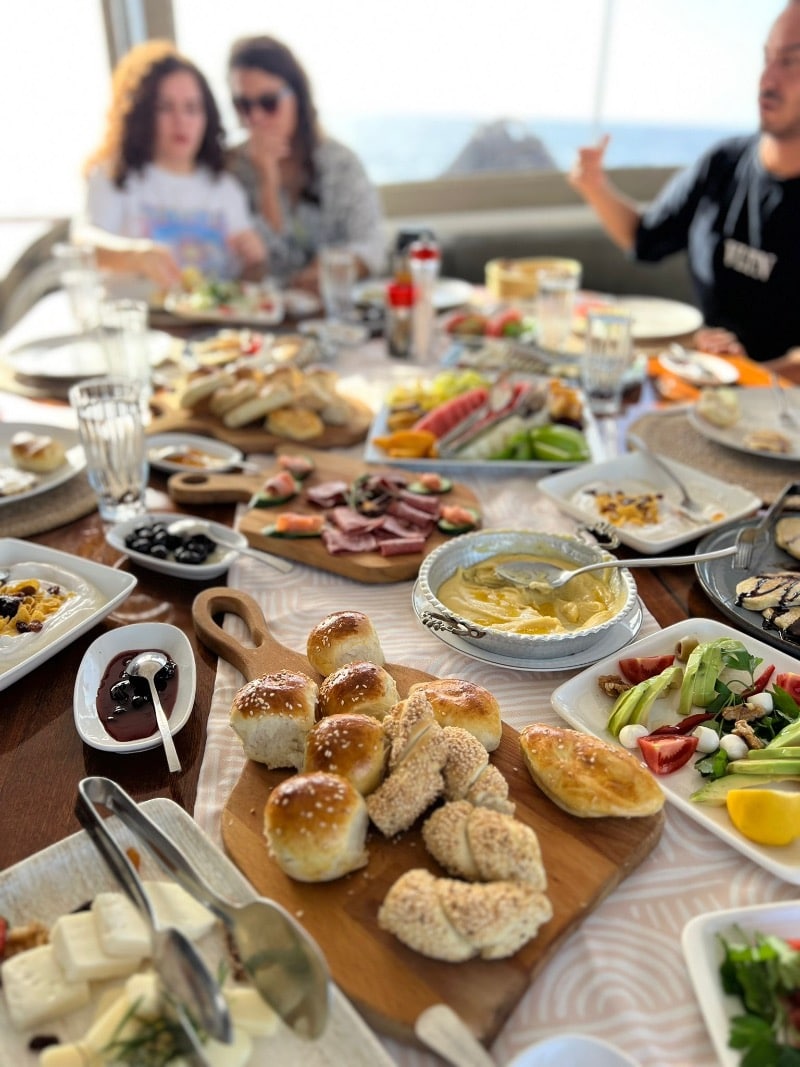Turkish breakfast—kahvaltı—is more than just the first meal of the day. It’s a cherished cultural ritual, known for its rich variety, generous portions, and the social joy of gathering around a shared table. Whether enjoyed at home, in a seaside café, or a mountain village, Turkish breakfast is a celebration of freshness, hospitality, and flavor.
A traditional Turkish breakfast is built around small plates filled with both sweet and savory items. The core offerings usually include:
Cheeses: A selection such as beyaz peynir (feta-like white cheese), kaşar (aged yellow cheese), and regional varieties.
Olives: Black and green olives, often marinated with herbs or lemon.
Tomatoes & Cucumbers: Sliced fresh, providing a crisp, light touch.
Jams & Honey: Homemade fruit preserves like cherry, fig, or apricot, often served with kaymak (clotted cream).
Fresh Bread: Sliced white bread or simit (sesame-crusted bread rings), essential for dipping and pairing.
Eggs: Served in different styles—boiled, fried, or as menemen (a scrambled dish with tomatoes, peppers, and sometimes onions).
Sucuk & Pastırma: Slices of spicy beef sausage (sucuk) or air-dried cured meat (pastırma), often pan-fried with eggs.
Butter & Spreads: Herb-infused butter, tahini with grape molasses (tahin-pekmez), and spicy pepper pastes.

No Turkish breakfast is complete without endless glasses of black tea, served hot in tulip-shaped glasses. Coffee might follow, but tea is the centerpiece.
More than just food, breakfast in Turkey is an occasion. It can stretch across hours, especially on weekends or holidays, when families and friends gather. It’s a time for conversation, connection, and slow enjoyment.
In cities like Istanbul and Izmir, contemporary cafes serve modernized versions of traditional breakfast, with avocado toast, poached eggs, or international fusions—yet still in the spirit of sharing and variety. A traditional Turkish breakfast is served every morning during gulet holidays.
